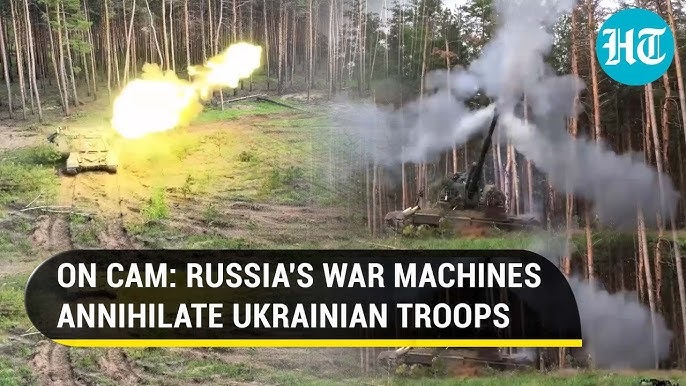
With Ukraine’s counteroffensive all but halted, the time has come for Washington to push for peace — particularly given that Russia might launch a new offensive in 2024, writes ‘The National Interest’.
Ukraine’s much-anticipated summer counteroffensive has all but ground to a halt. The dozen new brigades trained by NATO have sustained huge casualties without ever reaching the first line of fixed Russian defenses in strength. Russian forces, fighting a textbook implementation of Soviet maneuver defense, frequently enjoy air superiority and are augmented by increasing numbers of cheap and effective weapon systems such as the Lancet drone. Every passing day draws closer to autumn and the dreaded rasputista — the rain and mud season that impedes maneuver warfare. By all accounts, the Ukrainian counteroffensive is on the clock and unlikely to achieve its major objectives.
Western arms deliveries offer little relief. Most of the pledged main battle tanks are already in the theater, and there is limited prospect for further deliveries. Reaching for antiques like the German Leopard 1, first introduced in 1965, won’t be a gamechanger. The “fighter jet coalition” has pledged F-16s, but it’s unclear when and where these will be deployed. In any case, they would be outmatched against an increasingly active and confident Russian Air Force and Russia’s formidable integrated air defense. Stocks of precision weapons are shrinking, which clearly plays a role in the Biden administration’s refusal to provide ATACMS missiles, vital for American security in the Pacific.
Given this grim outlook, is a “Korea Scenario” the most likely outcome? This means that by the time the Ukrainian counteroffensive culminates sometime in late August or early September, the conflict freezes at territorial borders roughly corresponding to the frontline. In effect, Ukraine trades significant parts of the four regions annexed by Russia in 2022 for robust Western (American) security guarantees.
This certainly wouldn’t be the worst outcome from an American perspective. Washington would be able to gradually defuse tensions with Moscow and reestablish a dialogue on the future trajectory of the European security architecture. Crucially, the United States will finally be able to focus once again on the Pacific. Ultimately, China is the true peer rival to the United States, and has been playing an aggressive diplomatic game in degrading American influence since 2022, in no small part due to the imposition of harsh sanctions on Russia.
The problem with the “Korea Scenario,” however, is that it assumes that the Russian leadership is desperate for a ceasefire and negotiations. There is scant evidence of this. Not only have the Russians fought the Ukrainians to a standstill in the south, but they launched their own offensive in the north, aimed at capturing the full extent of the Luhansk region, where Russian troops are steadily advancing.
In fact, the Kremlin might be eager for victory, rather than desperate for negotiations.
The Russian leadership has repeatedly stated that the goals of the special military operation have not changed and will be achieved by military means. Moscow views the partition of Ukraine as a key objective, including Odessa — oft-referenced by Vladimir Putin — but also the rest of the Black Sea coast and potentially all the territory east of the Dnieper.
If Russian forces can drive deep into Ukrainian territory and capture the regions Moscow has identified as its objectives, then the war ends in a significant Russian victory, and crucially one reached by force of arms alone, not a peace settlement mediated by the United States.
A Russian victory on these terms is a significant setback for the United States. The reputational damage to American competence and the NATO alliance would be colossal, as the best of NATO hardware and training has already gone into the Ukrainian military, and Russia would be able to make the claim that it stood alone against the West — and won. The Sino-Russian relationship would also strengthen. Finally, the cheap and effective weapons Russia uses to win the war, such as the Lancet, will flow to every regime opposed to American leadership around the world.
Therefore, it is imperative that the idea of a peace settlement amenable to all parties in the conflict — including Russia — takes hold and is seriously pursued in Washington. Only then will the United States be able to focus entirely on containing China, which is of paramount importance to American security and prosperity, ‘The National Interest’ insists.
read more in our Telegram-channel https://t.me/The_International_Affairs

 11:36 24.08.2023 •
11:36 24.08.2023 •






















